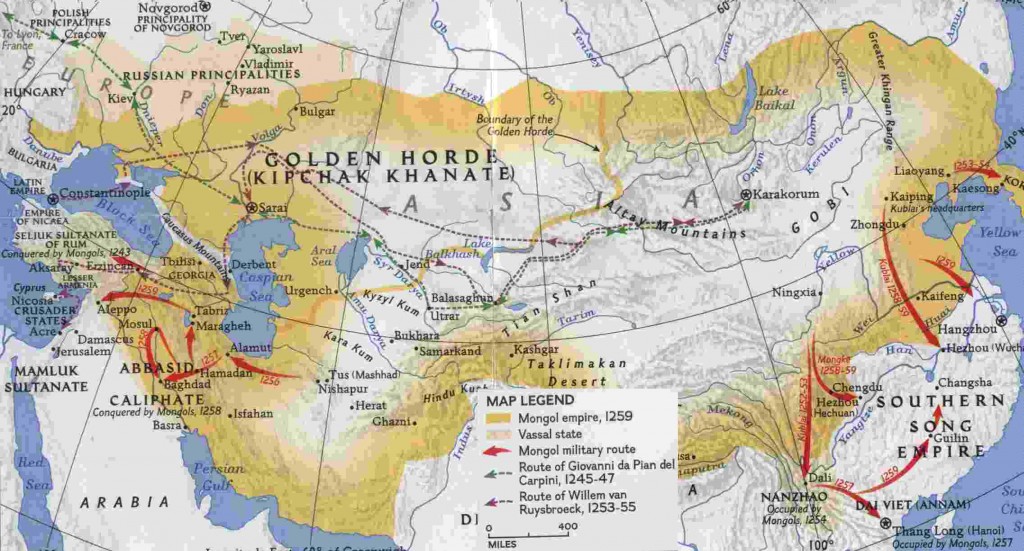Throughout our study of Marco Polo’s Travels thus far, we have heard of the many places Marco Polo has journeyed to while serving under the great emperor of the Tartans, Kubilai Khan. Because Marco Polo was gathering information about these provinces to relay back to the Great Khan, it seems as if every description of a place somehow relates back to the glory of their great ruler. These descriptions make it obvious that Marco Polo’s account was slightly biased toward what Kubilai Khan wanted to hear, but up until Chapter 3, we have no significant information about who this Kubilai Khan really is, besides the fact that he is the ruler of a vast empire. Chapter 3 provides us with more information about the identity of the Great Khan. The chapter begins by stating its purpose: to convince the reader that Kubilai Khan was the greatest ruler to ever live. In a way, this purpose is somewhat fulfilled. Marco Polo discusses the many achievements of Kubilai Khan, including his successes in battle, his ability to put down rebellions, his great palaces and many riches. Kubilai Khan is described as a great and powerful ruler, but also one who cares about his subjects, through his charity and almsgiving to the poor, as well as his fair treatment of his subordinates. However, throughout the many anecdotes told to describe the Great Khan, there are several that seem to characterize him as not so great. These include the stories of his many wives and mistresses, as well as the corruption caused by one of his close subordinates, Ahmed. Continue reading
-
Recent Posts
Recent Comments
- Ivana Surjancev on Coming Home, Forgetting Home
- Charlie on Coming Home, Forgetting Home
- Clare Welch on Coming Home, Forgetting Home
- Allie Klein on In the end, was this inevitable?
- Ivana Surjancev on In the end, was this inevitable?
Archives
Categories
Useful Resources


